Mar 2020 2nd Edition
Mar 2020 2nd Edition Londekile
Translations
All-woman firefighting team makes history
All-woman firefighting team makes history UrsulaSouth Africa’s first all-female firefighting team, made up of women from disadvantaged backgrounds, is already standing shoulder-to-shoulder with other firefighters to put out blazes during the Western Cape’s fire season.
![With the world celebrating International Women's Day on the 8th of March, the Juliet Crew is Image: by Jurie Senekal shattering gender stereotypes by proving that women can tame raging fires. [Photo: Charl Steenkamp/NCC Environmental Services.] With the world celebrating International Women's Day on the 8th of March, the Juliet Crew is Image: by Jurie Senekal shattering gender stereotypes by proving that women can tame raging fires. [Photo: Charl Steenkamp/NCC Environmental Services.]](/sites/default/files/images_2020_03_02/All-woman%20firefighters.jpg) Juliet Crew is the end result of the All-Woman Wildland Firefighting Project, the brainchild of NCC Environmental Services.
Juliet Crew is the end result of the All-Woman Wildland Firefighting Project, the brainchild of NCC Environmental Services.
Kylie Paul, superintendent of the team, says that she has been proud to witness the growth of the women. “In a very short period of time, the women went from shy and quiet, to proud and confident,” says Paul.
Sharne Maritz (19), a Juliet Crew firefighter, says that being part of the team has given her motivation for the future.
“In my community, we deal with a lot of gang violence, teenage pregnancy, youth unemployment and a high rate of poverty. Being part of this team has not only taken me away from my daily life, it has given me more drive for my future, she says.”
With 30 years of experience in wildfire management Dean Ferreira, the managing director of NCC Environmental Services says he has always wanted to offer women firefighters specialist training and their own quarters so that they could build self-belief in their capabilities and shatter the glass ceiling created by male firefighters.
In partnership with Chrysalis Academy, a youth development organisation formed by the Western Cape Provincial Government, NCC opened applications for a firefighting programme for at-risk females between the ages of 18 and 25. A team of 15 candidates were selected to become part of the Juliet Crew.
Over 90 percent of crew members come from female-headed households in Phillipi, Retreat, Mfuleni, Khayelitsha, Capricorn Park and Macassar, all of which have a legacy of poverty and violence.
The team recently took part in its first major operation when they helped battle a blaze in Noordhoek.
Charl Steenkamp, brand manager for NCC, says that the team performed exceptionally well.
“I witnessed them arriving on the scene, fully geared up and ready. They were immediately deployed and began operations with efficiency. This was their first time in a major operation, with helicopters flying and dumping water all around us and major burning happening not far from them. " Steenkamp says the Crew Juliet performed exceptionally and handled the pressures well, following the lead of their superintendent carefully.
Fire safety tips for you and your family
A small uncontrolled fire can quickly spread and become a threat to people’s lives and their property. Uncontrolled fires also occur in winter months, when there's a need to keep warm.
Prevention of fires
In order to prevent fires from starting or spreading, you should,
- not leave open fires unattended and should use sand to kill the fire, make sure that your home has no illegal electrical connections and that multiplugs are not overloaded, as these can overheat causing sparks and fires,
- tell someone who is playing carelessly with fires, matches or lighters to stop
- know your emergency numbers to report veldfires in your area.
What to do when a fire starts inside your home?
- Warn people inside the house to get out safely.
- Help people to get out and stay out of harm's way.
- If there is a lot of smoke, crawl out below the smoke to escape the fire.
How to put out a fire without water
- A fire needs heat, oxygen and fuel to survive. Without one of these elements the fire will die.
- If you don't have access to water or a fire extinguisher use sand or a wet blanket.
- If the fire occurs on your kitchen stove, try to smother the fire by placing a lid on top.
- Never use water to kill an electrical fire. It's also handy to keep a bucket of clean sand ready outside your kitchen door, or if possible, a small fire extinguisher.
For more opportunities offered by NCC Environmental Services, follow their Facebook page @NCCEnviron *To find out more about the training offered by Chrysalis Academy, call 021 712 1023.
All you need to know about hearing loss
All you need to know about hearing loss LondekileWhen you struggle to hear, your ability to communicate effectively is compromised and it can become difficult to enjoy taking part in daily activities such as outings with friends, business meetings, talking on the phone or listening to the television at normal level.
According to the South African National Deaf Association (SADA), hearing loss exists when there is diminished sensitivity to the sounds normally heard.
Hearing impairments are categorised by:
- their type, severity and the age of onset (before or after language is acquired), and can exist in only one ear or both ears;
- can occur in the outer or middle ear (conductive hearing loss) or in the inner ear (sensory-neural hearing loss), or both (mixed hearing loss);
- In the outer and middle ear, typical problems include too much earwax, infection of the auditory canal or infection of the eardrum, or otosclerosis, which is the abnormal growth of bone;
- In the inner ear, the majority of hearing problems result from damaged inner ear structures caused by aging, excessive exposure to loud noise, injury, illness and certain medications.
Hearing loss can range in severity from mild to profound and can be temporary or permanent.
A person with mild hearing loss is unable to hear soft sounds and has difficulty understanding speech in noisy environments; with moderate hearing loss, they are unable to hear soft and moderately loud sounds and have considerable difficulty understanding speech, particularly with background noise; with severe hearing loss, they are unable to hear most sounds; and with profound hearing loss, some very loud sounds are audible but communication without a hearing instrument is difficult.
Signs of hearing loss
In adults, hearing loss can develop gradually over several years. When this happens, most people are not aware of it until family or friends bring it to their attention.
Risk factors for hearing loss, that should be evaluated by an audiologist, include;
- trouble understanding people;
- dizziness or a balance problem;
- ringing in the ears (tinnitus);
- muffled or plugged ears;
- ear or head trauma and a family history of hearing loss.
Signs of hearing loss in children include;
- not being startled by loud sounds;
- can’t locate the source of sounds;
- often touching or pulling on one or both ears;
- stop babbling or make more high-pitched screaming sounds at six to eight months;
- need louder sound levels to function;
- often misunderstand spoken directions;
- not responding when called;
- withdrawing from social contact.
If you suspect that you could be suffering from hearing loss, visit your nearest clinic or an audiologist.
This information was supplied by the South African National Deaf Association. (www.sanda.org.za)
City residents helped to grow their own food
City residents helped to grow their own food vuyelwanThe City of Johannesburg’s Food Resilience Programme seeks to address urban poverty and food insecurity among residents.
According to Food Value Chain Sub-unit Head at the City of Johannesburg Simon Motsusi, the unit provides interested residents with the means to develop their own food gardens.
“We encourage residents to plant fruit and vegetables in their backyards, on rooftops or in open spaces near where they live,” Motsusi explains.
“We also support small, medium and large-scale farming co-operatives who wish to grow food to sell to the public,” he says.
The unit identifies suitable land and provides farming information, pest control support, access to implements and seeds, business advisory services and access to markets.
Motsusi says agricultural production increases access to healthy and nutritious food and can be used to generate income and agro-processing initiatives.
So far, Motsusi says over 9 100 small-scale food producers have benefited from the programme. Additionally, 52 urban farmers have managed to create income-generating projects within the city and over 7 400 indigent families have benefited from food banks across the city.
Emily Dikgale (55) of Blessings Co-operative in Diepsloot Extension Seven says the unit helped them identify the five hectares of land they currently farm, after they were told to stop farming next to a local graveyard.
“After a couple of years, we officially registered our co-operative and made sure we had the necessary documents,” Dikgale explains.
The City of Johannesburg makes a tractor available to the co-operative, as well as others in the area, to assist with planting.
Blessings Co-operative supplies maize, sunflowers, pumpkin, butternut, spinach, chillies, cabbage, onion and tomatoes to locals and residents from nearby areas such as Alexandra and Germiston. Some produce is also sold to Food Lover’s Market in Fourways.
Dikgale explains that the co-operative has enabled its members to provide for their families and also offers future security because, according to the co-operative’s constitution, when members retire or pass away, their places may be taken by their child or another beneficiary.
Her colleague, Phillimon Machipa (77), says he has 13 unemployed children.
“This is the only stable source of income and a way I can ensure that my family does not go to bed on empty stomachs,” he says.
To find out more about the Food Resilience Programme, call 011 407 7485 or email simonmotsusi@joburg.org.za
Health sector readied for COVID-19 spike
Health sector readied for COVID-19 spike JoyA substantial injection of cash is bolstering government’s health response to the coronavirus (COVID-19) crisis.
 President Cyril Ramaphosa announced the allocation of R20 billion to strengthen health efforts when he addressed the nation 25 days into the national lockdown. “If we are to successfully manage the anticipated surge in cases and ensure that everyone who needs treatment receives it, we must provide for additional expenditure on personal protective equipment (PPE) for health workers, community screening, an increase in testing capacity, additional beds in field hospitals, ventilators, medicine and staffing,” he said.
President Cyril Ramaphosa announced the allocation of R20 billion to strengthen health efforts when he addressed the nation 25 days into the national lockdown. “If we are to successfully manage the anticipated surge in cases and ensure that everyone who needs treatment receives it, we must provide for additional expenditure on personal protective equipment (PPE) for health workers, community screening, an increase in testing capacity, additional beds in field hospitals, ventilators, medicine and staffing,” he said.
President Ramaphosa added that the government’s priority is intensifying the health interventions needed to contain and delay the spread of the disease so that lives can be saved. The money is being used in several areas, such as bringing in more staff to support existing public sector healthcare workers. Health Minister Zweli Mkhize says investing in the health sector is a priority for his department. “Prior to the outbreak, you will recall this was the first pillar of the Presidential Health Compact and work had already begun to yield results.
“At the end of last year, we ensured all interns had been placed to begin work in 2020 and this was followed by the placement of all community service officers. Government made an undertaking that every single doctor must be employed and National Treasury remains determined to ensure that this is attained. Therefore, any doctor who is currently unemployed or may be having difficulties in the private sector due to the lockdown, is encouraged to contact their respective provinces,” says Minister Mkhize.
In addition, Minister Mkhize has called on retired healthcare professionals to re-join the working ranks, even if it is on a short-term basis. However, he cautioned that all returning healthcare workers must be registered with the relevant authorities. Part of the R20 billion will be used to acquire PPE for healthcare workers at public health facilities. At the end of April, Minister Mkhize said the country’s PPE stock would last for about six to eight weeks. He expressed concern over the 324 healthcare workers who had contracted the virus, saying the Department of Health is doing all it can to protect its employees.
Help is near for new varsity students
Help is near for new varsity students UrsulaAdapting to a new learning environment might be exciting for some students, but it can be intimidating for others.
A project specialist for training and support at Career Development Services (CDS), Romeo Pule Nkwale says one of the contributing factors to the anxiety faced by many first-year students is that they may have moved away from their sources of support.
CDS is a unit within the Department of Higher Education and Training it offers advice on choosing a career.
The unit not only targets school learners but also people who would like to change careers.
“Transitioning from high school to an institution of higher learning can be intimidating and a culture shock for many. This is when many students will first experience living away from home,” Nkwale explains.
What to expect
Institutions of higher learning are mostly diverse, with students coming from different parts of the world and having different backgrounds. This means they are likely to behave and respond to situations differently.
“This is a student’s opportunity to grow, not only academically but also personally,” he adds.
Unfortunately, Nkwale says the opportunity comes with a number of changes and challenges, including:
- experiencing a feeling of anxiety and frustration that can lead to isolation, overindulging or inferiority complex
- increased workload and adapting to new teaching and learning methods
- less contact time with lecturers which is difficult for learners used to being spoon fed.
Tips to help you cope
- Self-management skills - the ability to balance the different areas of your life, including social, academic, health, financial and spiritual.
- Interpersonal skills - how you relate to and communicate with people around you. These include listening, verbal and non-verbal communication skills.
- Time management skills - the ability to manage your time because there is a lot of work to be covered.
- Teamwork skills - some modules will require you to work in a group, give input and listen to other people’s opinions.
- It is important for students to have the resources they need, such as the prescribed books, study guides, stationery and a dictionary, and to follow and stick to their study timetable.
Where to go for help
Support services at most learning institutions include a financial aid office, library, disability unit, student counselling and guidance unit, peer mentors and student support services.
Contact details
National Career Advice Portal: www.careerhelp.org.za
You can SMS your question or send a ‘please call me’ to 072 204 5056 or call 086 999 0123 from Monday to Friday between 8am and 4.30pm.
Email: careerhelp@dhet.gov.za
Facebook: www.facebook.com/careerhelp
Twitter: www.twitter.com/rsacareerhelp
SA ready to deal with Coronavirus
SA ready to deal with Coronavirus vuyelwanSouth Africa is geared to deal with Coronavirus, Health Minister Dr Zweli Mkhize, told community members in KwaZulu-Natal’s Umngungundlovu District on Sunday.
Speaking at a community engagement session at the Pietermaritzburg City Hall, the Minister who largely spoke in isiZulu, said a collective effort as well as good basic hygiene habits are needed in order tackle to the virus.
He said while the South African healthcare system is facing challenges including the shortage of nurses, the country is capable of dealing with the virus.
“This one is an emergency. We are ready to deal with it as an emergency, so that’s what we need to make people understand,” he said.
The Minister engaged community members including religious leaders, business and civil society in an effort to allay fears, educate stakeholders and respond to questions about the virus.
“Fighting [the] virus is not [the responsibility of] a medical team only, it’s the community [as a whole]. We have the responsibility to stop the virus from spreading, that’s the message for today,” said the Minister.
He said health professionals in the country are competent to manage the virus.
“The health professionals both in the public and the private sector are fairly competent to manage the virus. All we need is for people to always cooperate. [People] must keep their hands clean and practice good hygiene,” said the Minister.
The Department of Health has activated an emergency operations centre to deal with Coronavirus.
There is dedicated staff working exclusively on Coronavirus. Provinces have also activated outbreak response teams.
Hospitals in all provinces have been equipped and are prepared to receive potential Coronavirus cases. These hospitals have been identified as centres for isolation and treatment.
The department announced the following hospitals as centres for isolation and treatment of people infected with Coronavirus:
- Polokwane Hospital in Limpopo
- Rob Ferreira Hospital in Mpumalanga
- Charlotte Maxeke Hospital, Steve Biko Hospital and Tembisa Hospitals in Gauteng
- Grey's Hospital in KwaZulu-Natal
- Klerksdorp Hospital in the North West
- Kimberly Hospital in the Northern Cape
- Pelonomi Hospital in the Free State
- Livingstone Hospital in the Eastern Cape
- Tygerberg Hospital in the Western Cape
Repatriation of South Africans
On the issue of the repatriation of South African from Wuhan City in China, the Minister emphasised that the group is not ill.
“The group that we’re getting from Wuhan are not ill, we’ve not had a South African who had an infection from China,” told community members.
The session with community members followed an earlier confirmation of a third case of Coranavirus.
It was announced earlier today that the wife of South Africa’s first confirmed Coronavirus patient, has tested positive for the virus.
According to doctor of the confirmed first patient, the man was in a jovial and upbeat mood.
“She confirmed that this patient is responding well and is now asymptomatic. At the right time, as determined by the treating doctors, the patient will be retested to check his recovery progress,” said the Minister.-SAnews.gov.za
Springbok captain makes African history
Springbok captain makes African history LondekileSpringbok Women’s captain Babalwa Latsha (25) is leading the pack in women’s rugby at home and across the continent. She recently made history as the first African woman to become a professional rugby player after signing with Spanish team SD Eibar Femenino.
The forward can play in both the tighthead and loosehead prop positions, as well as the Number Eight position.
Latsha says her achievement means far more to her than personal glory – she hopes it will inspire other young women who play the sport.
“Being the first African female professional rugby player is a pride for me. It’s a massive achievement not only for me as an individual, but for the game of women’s rugby itself in South Africa and in Africa. I hope from this we can garner momentum and have more African women rugby players turning professional and plying their trade overseas. I hope this becomes the norm at home first,” she says.
Latsha says she hopes she will be an example to other young women and show them that with passion and hard work, anything is possible.
The move to SD Eibar Femenino, Latsha says, came after scouts from the Spanish team spotted her during a game between the two countries’ national teams.
Having played soccer and participated in track and field events such as the shotput, Latsha only started playing rugby seriously at university. As a youngster, she had briefly dabbled in the game, in her home township of Khayelitsha in Cape Town, through the South African Rugby Legend’s Vuka programme, which aims to promote rugby in disadvantage communities and areas where it is not being played.
She then left the game until 2014 when she began studying law at the University of the Western Cape. During her first year, Latsha was approached by a group of female rugby players, who asked her to join their Sevens team which was going to play in the University Sports South Africa tournament that year.
Latsha ended up playing for the university team on a full-time basis. She then went on to play for the Western Cape provincial team, which she captained at three consecutive SA Rugby Women’s Interprovincial A-Section championships – in 2017, 2018 and 2019.
In 2018, Latsha was part of the Sevens team that represented South Africa at the Rugby World Cup Sevens tournament in San Francisco in the United States of America. In 2019, she made her debut for the 15-a-side team. She was named captain of the team in the same year.
“I have captained the Springbok side for a season-and-a-half,” she says.
She advises young women aspiring to make it in the game to train hard, maintain a healthy lifestyle, have a passion for the game, believe strongly in themselves and enjoy what they do.
“As a woman who plays rugby, a male-dominated sport, you have to believe in yourself because you are most likely to be ridiculed for one reason or another. People will say you look like a man or are trying to be a man. They will say you are too muscular for a girl. You never fit into any box of society.
“However, you need to stand your ground. You need to be confident in yourself and remain undeterred,” Latsha says.
Victory for SA at International Moot Court Competition
Victory for SA at International Moot Court Competition LondekileSouth African high school learners recently won the 5th International School Moot Court Competition in Gdynia, Poland, for the fourth time since 2014.
The competition affords learners an opportunity to understand how the Constitution and the law work.
Team South Africa consisted of Okhela Sigwela and Lizalise Dlomo, from Hudson Park High School in East London; Mihlali Stofile and Ondele Bede, from Holy Cross High School in Mthatha, Eastern Cape; Sureshka Naidoo and Caitlin Schwarer, from Eden College in Durban; and Nondumiso Ntshangase and Nosipho Dube from Mathubesizwe High School in Mandeni, KwaZulu-Natal.
Congratulating the team, President Cyril Ramaphosa said the victory is an achievement for all South Africans.
“This victory tells us that our schools are effective in preparing young South Africans for life beyond the classroom and beyond the borders of our country. This should inspire all of us to work even harder to secure better education outcomes for all learners,” he said.
Before bagging victory at the international competition, the learners first had to conquer the provincial and national legs of the competition by presenting for and against arguments in hypothetical scenarios.
“Locally, our arguments were based on a child having hair extensions when he was not allowed to have them at school. We had to argue whether or not the learner’s rights to education and his own beliefs were being violated, because the dreadlocks were for religious purposes,” says Dlomo.
At the international competition, the team argued a scenario in which a security minister from a fictitious country forcibly removed people from their native land. Dlomo says the team had to prove that the minister violated the people’s rights and that he did not.
Sigwela says the competition helped sharpen her arguing skills and ability to critically analyse situations, and that the competition is a great opportunity for those looking to grow their skills.
“This competition is not only a platform for people who have an interest in law as a career, but also for any person who wants to improve themselves because it includes critical and analytical skills.”
Welding sparks future artisan
Welding sparks future artisan SiboneloA newly-launched centre of specialisation is set to produce much-needed artisans for the country.
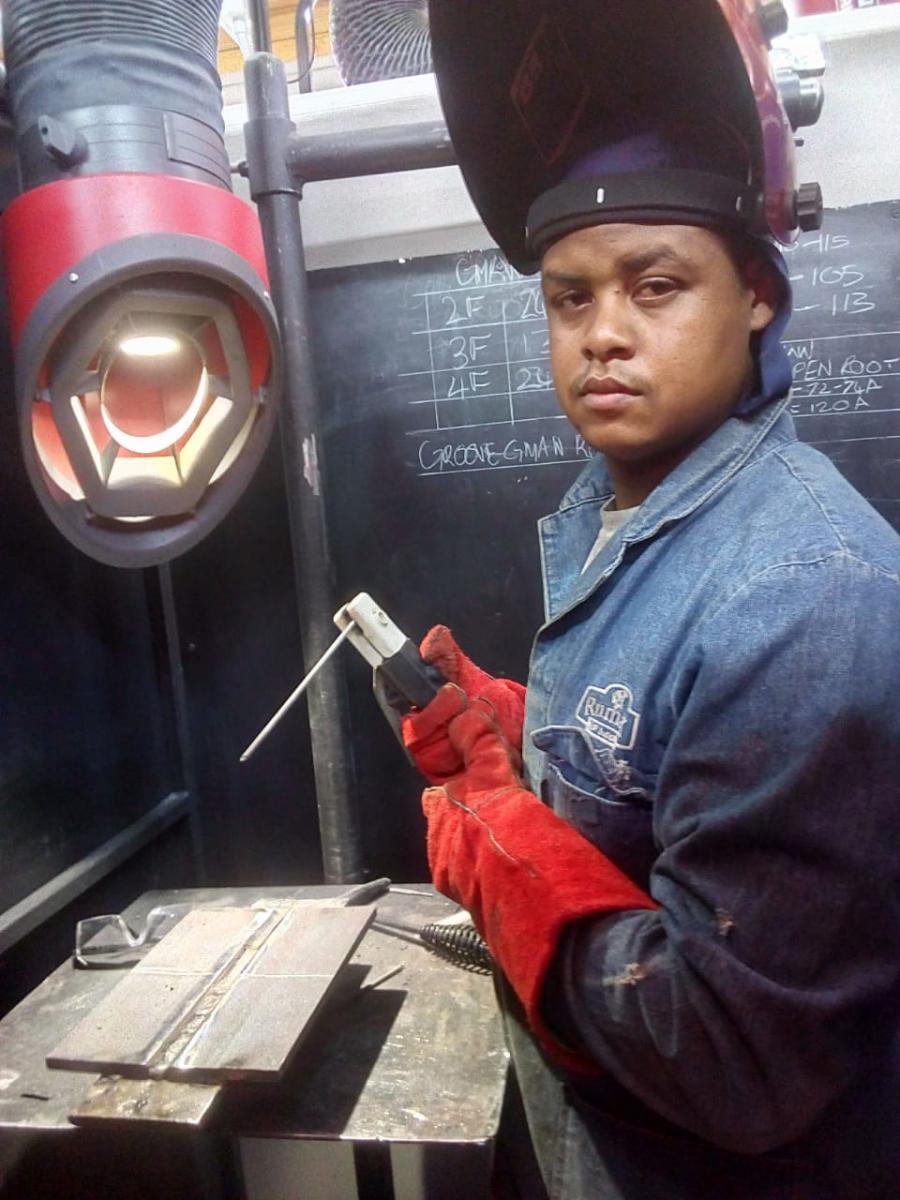
Boland TVET College’s Centre of Specialisation in Welding, based at the college’s Worcester campus, is skilling youth and upskilling artisans.
Second-year student Adenth Horne (23) from De Doorns says he has learnt how to weld materials such aluminium, stainless steel and cast iron.
“The skills I am learning here mean I can weld a tractor’s trailer, food safety equipment and stainless steel products,” Horne says.
Even though Horne already has a Welding Level II qualification, the centre is teaching him how to weld using new technologies, which will be put to good use when he opens his own industrial welding business.
“I want to open my own business because the area I come from has a lot of youth who have nothing to do. South Africa is importing welders at the moment because no one can do skilled welding jobs, like welding pipes under the sea,” he says.
The centre has 27 second-year students and is in the process of registering its second crop of first-year students. Ramarou Leseo, who is the welding facilitator at the centre, says they work with local businesses to secure work experience opportunities for their students.
The centre only accepts students once they secure work agreements with private companies. “Students split their time between school and work,” he says.
Horne works for a company that which produces agriculture-use products like hammer mills, pellet machines, muck spreaders and mechanical trimming blades. His job has enabled him to learn how the machines used in big companies work.
The welding centre is one of two in the country, with the other at Midlands TVET College.
Deputy Minister of Higher Education, Science and Technology Buti Manamela says the centres of specialisation seek to transform the college system to make it more responsive to industry needs.
Victory for SA at International Moot Court Competition
Victory for SA at International Moot Court Competition SiboneloSouth African high school learners recently won the 5th International School Moot Court Competition in Gdynia, Poland, for the fourth time since 2014.
The competition affords learners an opportunity to understand how the Constitution and the law work.
Team South Africa consisted of Okhela Sigwela and Lizalise Dlomo, from Hudson Park High School in East London; Mihlali Stofile and Ondele Bede, from Holy Cross High School in Mthatha, Eastern Cape; Sureshka Naidoo and Caitlin Schwarer, from Eden College in Durban; and Nondumiso Ntshangase and Nosipho Dube from Mathubesizwe High School in Mandeni, KwaZulu-Natal.
Congratulating the team, President Cyril Ramaphosa said the victory is an achievement for all South Africans.
“This victory tells us that our schools are effective in preparing young South Africans for life beyond the classroom and beyond the borders of our country. This should inspire all of us to work even harder to secure better education outcomes for all learners,” he said.
Before bagging victory at the international competition, the learners first had to conquer the provincial and national legs of the competition by presenting for and against arguments in hypothetical scenarios.
“Locally, our arguments were based on a child having hair extensions when he was not allowed to have them at school. We had to argue whether or not the learner’s rights to education and his own beliefs were being violated because the dreadlocks were for religious purposes,” says Dlomo.
At the international competition, the team argued a scenario in which a security minister from a fictitious country forcibly removed people from their native land. Dlomo says the team had to prove that the minister violated the people’s rights.
Sigwela says the competition helped sharpen her arguing skills and ability to critically analyse situations, and that the competition is a great opportunity for those looking to grow their skills.
“This competition is not only a platform for people who have an interest in law as a career, but also for any person who wants to improve themselves because it includes critical and analytical skills.”
Let us work together to fix our finances
Let us work together to fix our finances SiboneloFrom the Union Buildings
The Budget presented by Finance Minister Tito Mboweni presents a sobering assessment of the state of our economy.
The figures make it plain that unless we act now to turn things around, there will be even more difficult times ahead.
Put simply, we are spending far more than we are earning.
As a result, we are borrowing more and more, and the cost of servicing that debt is rising. In fact, debt service costs are now the fastest-growing area of expenditure. We spend more on debt repayments than we do on health; only education and social development get more.
This position is precarious and unsustainable.
We need to make significant changes and we need to make them now.
There are several reasons for the position we’re now in. Our economy has not grown much over the last decade, mainly due to the 2008 global financial crisis and a decline in demand for the minerals that we export. As a result, revenue collection has been weak and we have had to borrow more to sustain spending on development, infrastructure and wages. At the same time, state capture and corruption has affected governance, operational effectiveness and financial sustainability at several public institutions, including state-owned enterprises (SOEs).
Efforts over the last two years to revive the economy and rebuild institutions have now been undermined by the electricity crisis, further constraining growth and placing an additional burden on public finances.
Our priorities in this budget therefore are to put the economy back on a path of growth, constrain public spending and stabilise our debt.
The budget is an integral part of our drive for inclusive growth, job creation, investment and a capable state.
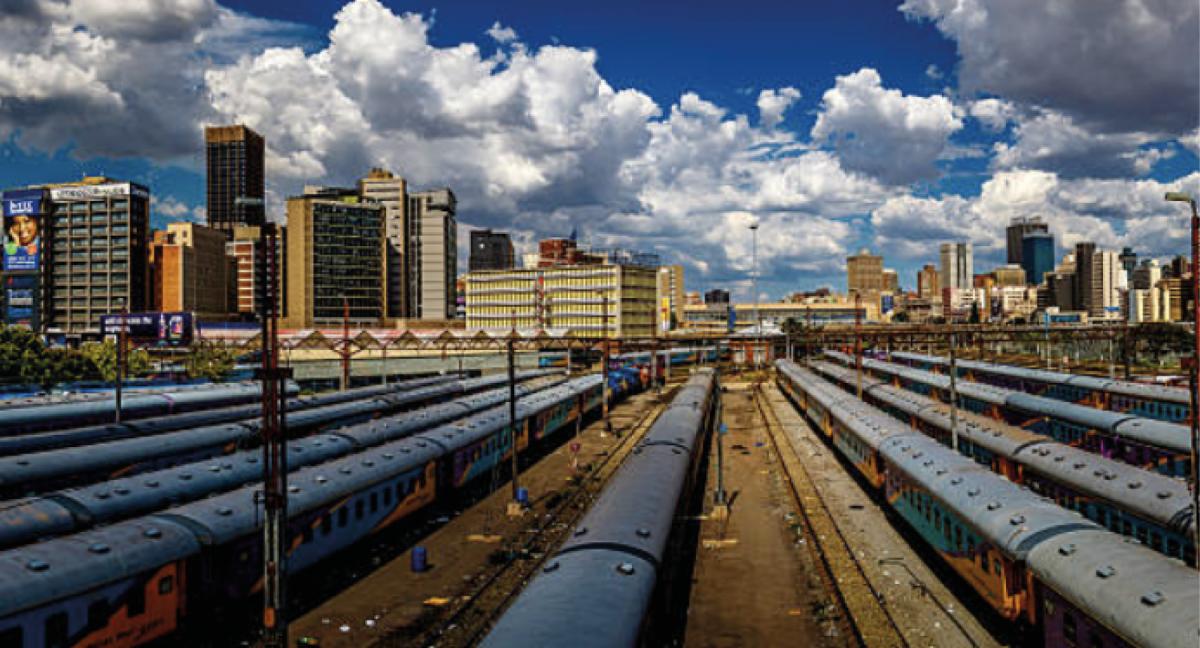 We have made a deliberate decision not to pursue a path of austerity. Such a route would have seen deep cuts in spending on the social services that poor people rely on. It could have involved dramatically reducing the salaries of civil servants, the size of the public service, cutting bonuses and pensions, raising taxes and selling off key state assets.
We have made a deliberate decision not to pursue a path of austerity. Such a route would have seen deep cuts in spending on the social services that poor people rely on. It could have involved dramatically reducing the salaries of civil servants, the size of the public service, cutting bonuses and pensions, raising taxes and selling off key state assets.
An austerity budget would have damaged our growth prospects further and weakened the ability of the state to stimulate economic activity and meet people’s needs.
We have instead presented a budget that contains a range of balanced and well-considered measures to contain spending, increase revenue and encourage growth.
Over the next three years, we expect to achieve savings of around R261 billion by cutting the budgets of several departments and reducing the rate at which the public service wage bill increases. At the same time, however, we will need to spend more to support the restructuring of SOEs like Eskom and SAA. As a result, we expect a net reduction of R156 billion in non-interest spending over the medium term.
This will help to narrow the deficit and reduce our borrowing needs.
A large part of the savings will come from reducing the rate at which our wage bill grows. This will require focused discussions among all social partners, but particularly with public sector unions. These engagements need to be conducted in a spirit of seeking solutions. I am heartened by the willingness of all parties to engage in serious negotiations aimed at finding a solution.
Our approach is not to dramatically cut the size of the public service, but to examine the rate at which wages grow. Public service wages have on average increased at a much higher rate than inflation over many years, and we need to fix this if we are to get public finances under control. This also applies to the management of people’s personal finances, where if any expenditure item that rises at a rate more than inflation – be it electricity tariffs, mobile tariffs or food – will always put any individual person’s budget and finances under strain and out of kilter.
The wage bill remains the largest component of spending by economic classification. Growth in the wage bill has begun crowding out spending on capital projects for future growth and items that are critical for service delivery.
The public service wage bill is by no means the only area where we are cutting costs. I have decided that there will be no increase in the salaries of senior public office bearers this year. This follows a reduction in benefits stemming from changes to the Ministerial Handbook. We will publish a new law this year introducing a remuneration framework for public entities and state-owned companies to prevent excessive pay for board members and executives.
Our trade union compatriots are right in saying that we should in a demonstrable way prevent leakages of public funds by addressing corruption, ending irregular, fruitless and wasteful expenditure. We will do this and much more.
As much as containing the public wage bill is critical to stabilising public finances, improving public sector performance is imperative if we want to build a more capable, efficient state. We need more of the right people in the right positions.
As we contain public spending, we are pursuing growth. It is for this reason that, despite the fiscal gap, there are no major tax increases. Instead, there is some relief for individual tax payers and several measures to broaden the corporate tax base. We are also pushing ahead with far-reaching reforms in areas like electricity provision, ports and rail and telecommunications to reduce the cost of doing business. Through the Infrastructure Fund, we aim to mobilise financing from a range of sources to invest in a massive build programme. Through our industrial strategy and investment drive, we are unlocking vital areas of growth.
We are fixing our public finances to make inclusive growth and job creation possible. Such times call for us to be realistic, not dogmatic. They call for cooperation, not conflict. Compromises and trade-offs will have to be made.
We are all in this together, and we share a collective responsibility to take the oars, to row in unison and steer our country through these stormy waters.
Placements now easier for jobless KZN teachers
Placements now easier for jobless KZN teachers SiboneloKwaZulu-Natal Department of Education has launched a ground-breaking mobile Human Resources App (HR App) for unemployed qualified teachers in the province.
 The app was officially unveiled by the department’s MEC Kwazi Mshengu in February. It will save people applying for educator positions from having to travel long distances to hand in their applications.
The app was officially unveiled by the department’s MEC Kwazi Mshengu in February. It will save people applying for educator positions from having to travel long distances to hand in their applications.
Unlike the database previously used by the department, the app will allow educators to update their information when, for instance, they obtain a new qualification.
It will also keep track of graduates who have been placed whilst flagging those who are on temporary placements so that they are not completely removed from the database until they have been permanently placed.
MEC Mshengu says registering on the app is easy and that multiple registrations can be prevented.
“We are excited that we are taking a giant step that will see qualified but unemployed educators getting an opportunity that will see them easily applying for employment from their cell phones, wherever they are in the province,” he says.
He adds that the app will attract those who want to pursue a career in teaching but were beginning to lose hope due to frustrations associated with applying for jobs.
How the app works
- The applicant will first be required to download the app and register. During registration, the app will allow the applicant to upload qualification documents and specify subjects they are qualified to teach.
- Once a school indicates that it has a vacant post, the app will pull the details of teachers who meet the application criteria.
- The app will then alert shortlisted teachers.
- District offices and the provincial human resources department will be involved to ensure due process is followed.
- The successful candidate will be notified via the app.
Importantly, the app will have an audit trail for transparency and auditing purposes.
The app is available on various platforms under the name KZN Qualified Educators.
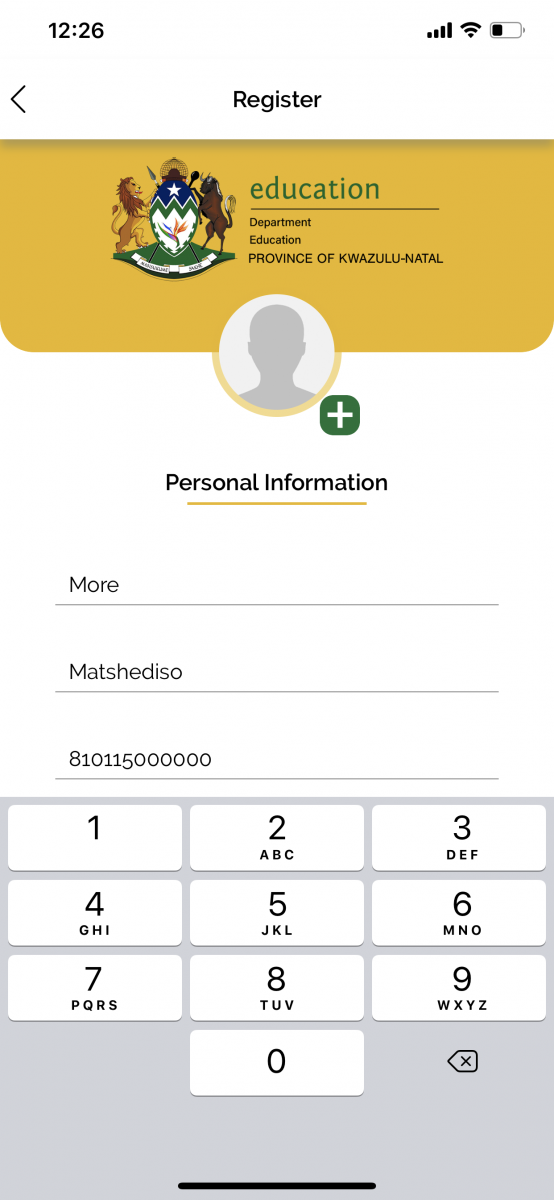

Patient support crucial for fighting TB
Patient support crucial for fighting TB vuyelwanThe USAID Tuberculosis South Africa Project is proving to be a perfect example of how government, communities and NGOs can partner together to combat tuberculosis (TB) by providing proper support to patients.
South Africa has taken a position of leadership in the global fight against TB, and the United States Agency for International Development (USAID) has stepped in to provide assistance.
The five-year project, which started in 2016, is being carried out in partnership with the National Department of Health in eight of South Africa’s provinces. 
One of the most important parts of the project is to support community-based NGOs. The project provides funding to 21 NGOs who have supported more than 3 500 patients, the majority based in rural areas.
Free State progress
Based in Mangaung, Mosamoria is one of the NGOs which has received funding from the project. The organisation has a team of community health workers, a project manager and a data capturer who all work towards ensuring that patients stay on treatment so that they can be cured in a six month period.
“We employ 74 care givers for this project. Initially we worked with 200 patients, then 400 patients, and in our current contract we have 500 patients who we work with on a daily basis. The patients are referred to us when they have been diagnosed as having TB from nine different clinics in the Mangaung Metro,” says Mosamaria coordinator Trudie Harrison.
Mosamaria conducts monthly door-to-door screening campaigns to find new TB patients and get them on treatment immediately.
Harrison says that Mosamoria’s work has reduced the stigma around TB, built close relationships with the community and also led to much better rates of successful treatment.
“For example, in 2018, 514 of our patients were cured,” Harrison says.
Harrison shares the story of one of Mosamaria’s patients. He was given daily support by a Mosamaria caregiver, who ensured that he swallowed his tablets every day and also assisted with maize meal and new clothes.
“He completed the treatment and was cured. He went back to work as his employer had kept his job for him,” says Harrison.
Know the symptoms of TB
If you have some of the following symptoms, then you should visit your nearest clinic or hospital to be tested for TB:
- Coughing that lasts three or more weeks;
- Coughing up blood;
- Chest pain, or pain when breathing or coughing;
- Unintentional weight loss;
- Fatigue;
- Fever.
For more information about the USAID TB South Africa Project, contact 012 484 9300.
All you need to know about hearing loss
All you need to know about hearing loss vuyelwanWhen you struggle to hear, your ability to communicate effectively is compromised and it can become difficult to enjoy taking part in daily activities such as outings with friends, business meetings, talking on the phone or listening to the television at normal level.
According to the South African National Deaf Association, hearing loss exists when there is diminished sensitivity to the sounds normally heard.
Hearing impairments are categorised by:
- their type, severity and the age of onset (before or after language is acquired), and can exist in only one ear or both ears.
- can occur in the outer or middle ear (conductive hearing loss) or in the inner ear (sensory-neural hearing loss), or both (mixed hearing loss).
- In the outer and middle ear, typical problems include too much earwax, infection of the auditory canal or infection of the eardrum, or otosclerosis, which is the abnormal growth of bone.
- In the inner ear, the majority of hearing problems result from damaged inner ear structures caused by aging, excessive exposure to loud noise, injury, illness and certain medications.
Hearing loss can range in severity from mild to profound and can be temporary or permanent.
A person with mild hearing loss is unable to hear soft sounds and has difficulty understanding speech in noisy environments; with moderate hearing loss, they are unable to hear soft and moderately loud sounds and have considerable difficulty understanding speech, particularly with background noise; with severe hearing loss, they are unable to hear most sounds; and with profound hearing loss, some very loud sounds are audible but communication without a hearing instrument is difficult.
Signs of hearing loss
In adults, hearing loss can develop gradually over several years. When this happens, most people are not aware of it until family or friends bring it to their attention.
Risk factors for hearing loss, that should be evaluated by an audiologist, include;
- trouble understanding people;
- dizziness or a balance problem;
- ringing in the ears (tinnitus);
- muffled or plugged ears;
- ear or head trauma and a family history of hearing loss.
Signs of hearing loss in children:
- not being startled by loud sounds;
- can´t locate the source of sounds;
- often touching or pulling on one or both ears;
- stop babbling or make more high-pitched screaming sounds at six to eight months;
- need louder sound levels to function;
- often misunderstand spoken directions;
- not responding when called;
- withdrawing from social contact.
This informations was supplied by the South African National Deaf Association (www.sanda.org.za)
If you suspect that you could be suffering from hearing loss, visit your nearest clinic or an audiologist.
Livestock auction ban lifted
Livestock auction ban lifted vuyelwanAlthough the blanket ban on livestock auctions has been lifted, strict measures to prevent new foot and mouth outbreaks will be enforced.
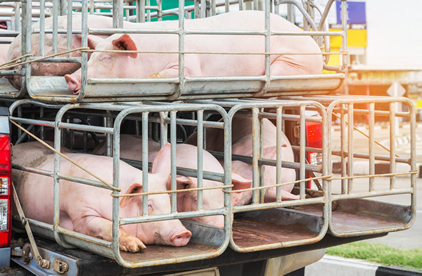 The Department of Agriculture, Land Reform and Rural Development has unbanned the auctioning of livestock.
The Department of Agriculture, Land Reform and Rural Development has unbanned the auctioning of livestock.
This was announced by the department’s Minister Thoko Didiza.
“The decision was taken after clinical assessments were conducted on the foot and mouth disease outbreak that affected livestock in the Molemole District in Limpopo since November 2019,” she says.
About the outbreak
According to the Minister, initial investigations revealed that the outbreak could be linked to four auctions, held at two auction premises in September and October 2019.
“To prevent the outbreak from spreading further and allow the veterinary officials to determine the extent of the spread, an intensive system of tracking and tracing livestock movements and locations was put in place,” the Minister explained.
The application of this system needed strict isolation measures, which included a temporary ban on gatherings of cloven-hoofed animals nationwide.
Minister Didiza says approximately 160 properties were identified with links to the auctions. These premises had to be visited and placed under isolation, with clinical inspections conducted and samples collected as part of the investigation to determine exposure to the infection.
“Good progress has been made and the precautionary isolation has been lifted on more than 90 of these properties. In total, 18 farms were identified where animals tested positive for the disease.”
“I am aware of the social and economic impact this decision had on livestock owners, traders and the general sector stakeholders. I want to reassure the nation that this decision was not taken lightly and was implemented as a disease control measure.”
She says authorities expect auctioneers and sellers to maintain the highest standards of animal health and buyers to undertake due diligence.
How to prevent new infections?
Do not move high-risk animals, that show signs of disease, animals from unknown origin or animals originating from known infected areas.
Only buy animals from known and proven sources.
Buyers must insist on a veterinary health declaration before animals are brought onto their farms.
Always place new arrivals in isolation until you can satisfy yourself of their health status.
The Minister says veterinary services are workng with affected farmers to find a way forward.
“Slaughter of cattle at specifically designated abattoirs has started, with additional measures in place to prevent any disease spread through materials such as heads, feet and offal,” she says.
Regardless of these developments, the Minister said the outbreak of the disease in the free zone cannot be declared as over yet, although it appears that the initial spread of the disease has been successfully contained.
Auctioning livestock
Livestock agents must be registered with the Agricultural Produce Agents Council (APAC), which is an agency of the department. It provides rules that agents need to comply with.
Agents who are already registered with APAC and are complaint with the rules in respect of livestock agents as published in Government Gazette 41473 Board Notice 28 of 2018, may proceed with auctions.
However, she says that all APAC certificates issued prior to 2 March 2018 have lapsed and renewal should be done on or before 30 March 2020.
Those who would like to register should email Francois@apacouncil.co.za or call 011 894 3680.
South Africa’s amazing tree of life
South Africa’s amazing tree of life vuyelwanAs the world becomes increasingly concerned about climate change, South Africans are turning to an incredible indigenous tree to not only help in the fight against this global problem, but also to create incomes for disadvantaged members of society.
The spekboom tree absorbs huge amounts of carbon dioxide – the main gas which is causing the world to become warmer each year.
Three years ago, Peter Shrimpton, founder of non-profit organisation Heart Capital, recognised the potential of the spekboom to fight climate change.
“I read an academic paper on the amazing ability spekboom has to absorb carbon, so I decided to plant a few trees,” said Shrimpton.
When he discovered that the tree was very easy to grow, Shrimpton saw an opportunity to make a difference in the lives of disadvantaged people around Cape Town.
“I thought it would be an incredible way to lift people out of poverty. I went into townships and enabled disadvantaged people to start growing spekboom for me by giving them the growbags, compost, mother stock and training on how to plant and grow spekboom.”
Through Shrimpton’s initiative, called Wonder Plant, five "treepreneurs" have been employed to grow spekboom. The trees are sold to members of the public and organisations and the proceeds are then used to provide an income for the growers.
“Each of the treepreneurs manages around 25 000 trees. I started with 300 trees, and we currently have 164 000 in stock,” said Shrimpton.
The treepreneurs all stay in Chic Shanty Town, a residency funded by Heart Capital to provide homes for disadvantaged community members.
Before coming to Chic Shanty Town, treepreneur Ashwell Musonza was working on a grape farm in the area but was not earning enough.
“I enjoy caring for the spekboom trees as they provide individuality and a sustainable income,” he said.
Shrimpton said Wonder Plant also assists other members of the community, as well as schools in the area. “We’ve just partnered with schools to enable poor parents to grow Trees for Fees. We'll provide them with the materials and then purchase the trees from them, so they can have money to pay for their kids’ education.”
Learners go wild with the joy of nature
Learners go wild with the joy of nature vuyelwanOver 25 000 learners get the opportunity to leave the classroom every year to enjoy a learning experience in nature, at environmental education centres run by the Wildlife and Environment Society of South Africa (WESSA).
 WESSA runs five education centres, three in KwaZulu-Natal and one each in Limpopo and the Northern Cape, where science teachers, environmental scientists, conservationists and tour guides treat children to a host of educational nature activities.
WESSA runs five education centres, three in KwaZulu-Natal and one each in Limpopo and the Northern Cape, where science teachers, environmental scientists, conservationists and tour guides treat children to a host of educational nature activities.
“Our centres are located in unique and protected environments, which many students have never been exposed to. The best way to protect these environments is through education and awareness,” said Matthew Cocks, General Manager of the centres.
The centres offer a number of education programmes, based on the CAPS curriculum, and also help children to develop other life skills.
“Our programmes help teachers and students understand specific habitats, scientific concepts and facts contained in the CAPS curriculum. As our programmes are outdoors, fun and practical, learners also develop soft-skills such as creativity, critical thinking, emotional intelligence, risk awareness and a sense of community and environmental upliftment,” Cocks explained.
When learners arrive at the centres, they are introduced to the guides and the environment through a set of fun activities. Then they go into nature and take part in a number of activities and experiments that teach them about the environment.
“The mini Stream Assessment Scoring System programme is one of our most popular programmes. Learners enter a stream or river to catch and identify invertebrates, which gives them an idea of the health of the river and the water quality. The goal is to enable participants to leave with practical ways to protect their own environment in their communities and schools,” said Cocks.
Jani Louw, a teacher from St Patrick’s College in Kimberley, said her group of learners had an incredible time at the Treasure Beach Environmental Education Centre in Durban.
“This camp truly enriched the lives of our learners. Not only did they have tons of fun, but they were taught about our natural resources in way that inspires,” said Louw.
Take care of the environment
Take care of the environment vuyelwanUnless we start treating the environment better, the rising temperatures, floods, fires and droughts the world has been experiencing will only get worse.
South Africa has experienced devasting droughts and floods, while internationally, many countries have battled extreme weather and weather-related disasters, such as the wildfires in Australia and Canada.
We need to take a stand and start caring for the environment.
The results of a polluted environment?
Desertification
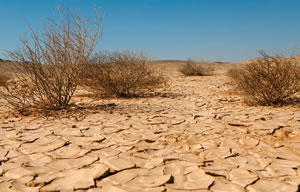 Global warming causes desertification, which is the degrading of land caused by extreme weather conditions, particularly drought, and human activities that pollute or degrade the quality of soil. What we do to our soil determines the quality and quantity of the food we eat and how our ecosystems serve us.
Global warming causes desertification, which is the degrading of land caused by extreme weather conditions, particularly drought, and human activities that pollute or degrade the quality of soil. What we do to our soil determines the quality and quantity of the food we eat and how our ecosystems serve us.
Environmental Pollution
 Stop throwing your rubbish on the ground! Litter and illegal dumping have environmental, social and economic effects. Litter can trap, su_ ocate, strangle and poison wildlife and livestock such as cows that may die from eating plastic.
Stop throwing your rubbish on the ground! Litter and illegal dumping have environmental, social and economic effects. Litter can trap, su_ ocate, strangle and poison wildlife and livestock such as cows that may die from eating plastic.
Litter also contaminates soil and water and blocks stormwater drains, thereby leading to floods.
Cigarette butts not extinguished and put in the bin could start fires, which could negatively impact the environment.
Soil Erosion
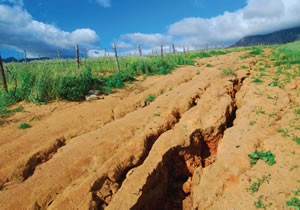 When a raindrop hits soil that is not protected by a cover of vegetation and where there are no roots to bind the soil, it has the impact of a bullet. Soil particles are loosened, washed down the slope of the land and either end up in the valley or being washed away to sea by streams and rivers. Erosion removes the topsoil first. Once this nutrient-rich layer is gone, few plants will grow in the soil again; this means people and animals will have less food.
When a raindrop hits soil that is not protected by a cover of vegetation and where there are no roots to bind the soil, it has the impact of a bullet. Soil particles are loosened, washed down the slope of the land and either end up in the valley or being washed away to sea by streams and rivers. Erosion removes the topsoil first. Once this nutrient-rich layer is gone, few plants will grow in the soil again; this means people and animals will have less food.
What is climate change?
The Earth’s climate is always changing and global climate change has typically occurred very slowly over millions of the years. Today our climate is changing rapidly because of the rate of development, our Population growth and our general lack of concern for the environment.
Apart from increasing average temperatures, climate change also alters rainfall pattern and leads to extreme weather events which result in floods, fires and droughts.
How to care for the environment
Plant indigenous trees
 Trees absorb carbon dioxide from the air and use it as their energy source, producing oxygen for us to breathe.
Trees absorb carbon dioxide from the air and use it as their energy source, producing oxygen for us to breathe.
Save water
 Don’t use more water than you need. Be careful not to let water run when you shave, brush your teeth or wash vegetables. Fix leaking taps.
Don’t use more water than you need. Be careful not to let water run when you shave, brush your teeth or wash vegetables. Fix leaking taps.
Save electricity
 Unplug or turn of all electronic equipment when not in use, including lights, TVs, heaters, fans and kitchen appliances.
Unplug or turn of all electronic equipment when not in use, including lights, TVs, heaters, fans and kitchen appliances.- Use gas for cooking.
- Use less hot water by washing your laundry in cold or warm water.
- Switch to energy-saving light bulbs. This will save you money on your next electricity bill and the bulbs last up to eight times longer.
Reuse, reduce and recycle
 Reduce - Buy and use less. Also, buy products that offer packaging made from recycled materials.
Reduce - Buy and use less. Also, buy products that offer packaging made from recycled materials.- Reuse - Store food in reusable containers rather than non-recyclable cling-wrap or tinfoil made from resource-intensive aluminium. Repair products rather than buy news ones, if possible. Donate items you no longer need instead of putting them in the garbage.
- Recycle - Choose packaging and products that are recyclable – look for the recycle symbol – and be sure to recycle paper, glass, plastic and tins. You can also use your vegetable waste to make compost.
Seda helps rev up auto electrical business
Seda helps rev up auto electrical business UrsulaThe co-owner of Excserpro Auto Electrical, Gabisile Ndlovu (31), never dreamed she would one day have a job that involved repairing car starters, alternators, motor electronics and running engine diagnostics.
She has successfully built an auto electrical business, which she co-owns with Biona Mutamira (49).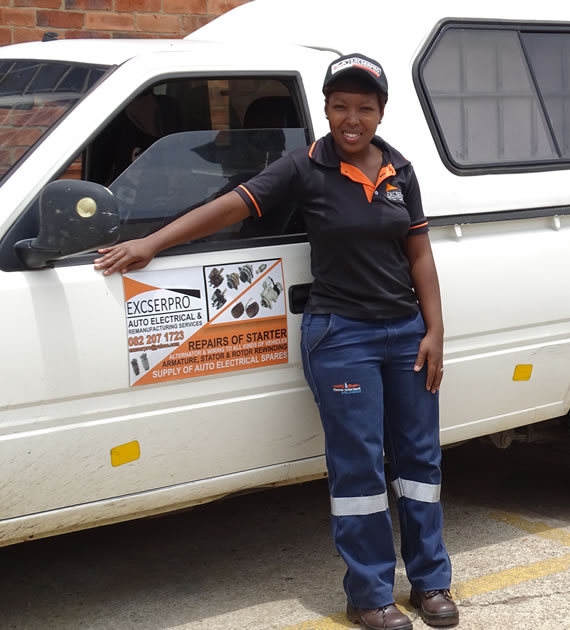
Excserpro is based in Evander, Mpumalanga, and the name is an acronym for excellent service provider. Ndlovu owns 60 percent of the business, which focuses on repairing the wiring of automotive machines like TLBs (tractor-loader-backhoe), excavators, welding machines and generators.
“We do auto electrical work and remanufacture and supply auto electrical car spares,” says Ndlovu.
Auto electricians specialise in the installation, repair and maintenance of electrical and electronic systems in cars and other motor vehicles. This includes the repairing of starters, alternators and rewiring of all types of vehicles and machines.
“Excserpro also use a diagnostic machine that picks up faults in cars.”
Thanks to support from a Small Enterprise Development Agency's (Seda) initiative called the Seda Technology Programme (STP), Excserpro is thriving.
STP helped the company set up a website and acquire advertising boards. In addition, it assisted with human resources policies and accounting systems.
The Seda programme focuses on sustainable enterprise development through technology business incubation, monitoring, evaluation and improvement of service and product quality and standards.
It provides grant funding, promotes the transfer of technology, links investors with small and medium enterprises and facilitates technology partnerships between local and international companies.
Ndlovu studied electrical engineering at the Gert Sibanda TVET College but her destination was reached in a round-about way.
“After matric, I worked as general worker, cleaning starters and alternators, at an auto electric firm. I got bored and wanted to persue other things but was instead offered an apprenticeship.”
She worked as an underling to her current business partner, Mutamira, before heading off to college where she earned her N3 qualification.
Her journey from cleaner to business owner is proof that seizing opportunities that come your way can be life transforming.
Victories recorded in the war on rhino poaching
Victories recorded in the war on rhino poaching UrsulaRhino poaching in South Africa has declined from 768 rhino killed for their horn in 2018 to 594 in 2019.
This is according to Minister of Environment, Forestry and Fisheries Barbara Creecy.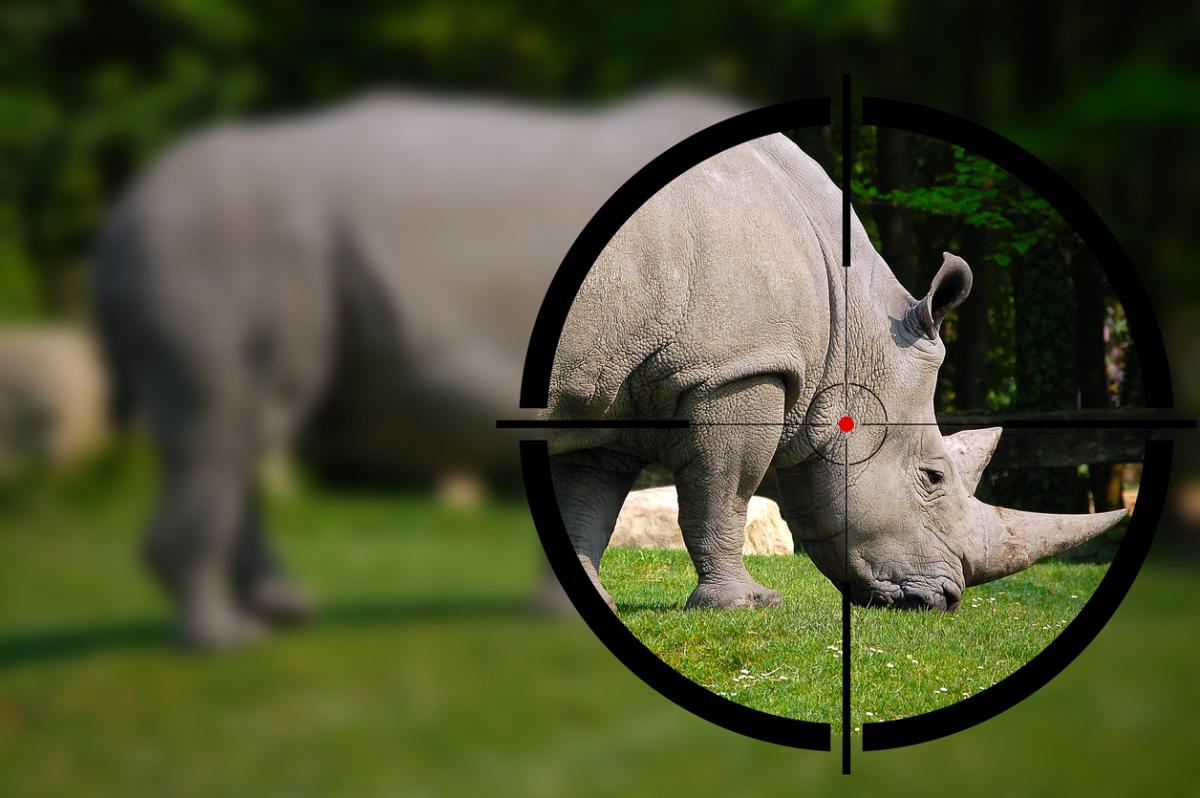
She says the decrease is the result of additional steps taken by government to curb poaching and paid tribute to the rangers who work tirelessly each day to stop poachers.
Anti-poaching measures implemented by government include improved capabilities to react to poaching incidents through better situational awareness and use of technology, improved information collection and sharing amongst law enforcement authorities, better regional and national co-operation and more meaningful involvement of the private sector, non-governmental organisations and donors.
“A decline in poaching for five consecutive years is a reflection of the diligent work of the men and women who put their lives on the line daily to combat rhino poaching, often coming into direct contact with ruthless poachers,” says the minister.
She says that steps to address rhino poaching and wildlife crime across the country are aligned with the Integrated Strategic Management of Rhinoceros plan and with the principles set out in the draft National Integrated Strategy to Combat Wildlife Trafficking (NISCWT), which will be taken to Cabinet for consideration in the first half of this year.
The NISCWT aims to strengthen the law enforcement aspects of the Integrated Strategic Management of Rhinoceros plan and broadens the scope to combat other wildlife trafficking, not only rhino poaching.
With regard to elephant poaching, the department says 31 elephant were poached in South Africa in 2019, of which 30 were from the Kruger National Park and one was from Mapungubwe National Park. This is a far cry from the 71 poached in 2018.
From January to December 2019, 178 suspected poachers were arrested in the Kruger National Park. Nationally, 332 suspects were arrested for rhino poaching and rhino horn trafficking.
Members of the public can report any suspicious activities to the Environmental Crime Hotline at 0800 205 005 or the SAPS number 10111.
Vulekamali empowers South Africans
Vulekamali empowers South Africans UrsulaWith a click of a button, people are able to easily get to grips with the country’s budgets, thanks to an online system called Vulekamali. 
The portal was established two years ago by National Treasury in collaboration with a number of civil society organisations.
This innovative project won an award during the 17th Public Sector Innovation Awards 2019, under the Innovations Harnessing 4IR Solutions category.
National Treasury Director Andile Best, who leads the Vulekamali portal initiative, says its main aim is to increase public interest, participation and knowledge of government’s financial programmes.
“This is National Treasury’s commitment to be more transparent about public finances. Budgetary information is already published on Treasury’s website, but the portal contains easily accessible data in a user-friendly format, to enable more effective information sharing, analyses and research,” he explains.
According to Best, Vulekamali supports involvement by civil society and the public in budget processes and enables citizens to have informed discussions about government policies.
“If we ask the public to participate in budgetary processes and they come from a position of not knowing, they cannot make quality inputs. Secondly, we want the public to know how government spends money from the public purse,” Best says.
For example, civil society organisations often want to know how government renders services, how services are connected to the budget and whether national, provincial or local government is responsible for specific services.
Best says amongst the stakeholders involved in the project are the Department of Planning, Monitoring and Evaluation; civil society coalition Imali Yethu; Global Initiative and the Government Technical Advisory Centre.
At every level of decision making and on each governance structure, there is representation of both government and civil society, he says.
Speaking on behalf of the civil society organisations involved, Zukiswa Kota, the head of the Monitoring and Advocacy Programme at the Public Service Accountability Monitor and lead co-ordinator of Imali Yethu, says accountable budgetary processes are critical to a democracy. The ultimate goal is to influence better service delivery, she says.
“For us, access to quicker information means that you do not constantly have communities upset and unaware of budget processes,” she says, adding that people have a better sense of the urgency required in commenting on budgets and they know who to speak to about their frustrations.
You can access Vulekamali is available on: www.vulekamali.gov.za
For queries, email feedback@vulekamali.gov.za or send a message on Twitter: @vulekamali or Facebook: vulekamali.
Government hatches egg producer
Government hatches egg producer UrsulaA Winterveldt poultry farm is benefitting from government’s plans to make poultry a leading industry in the country.
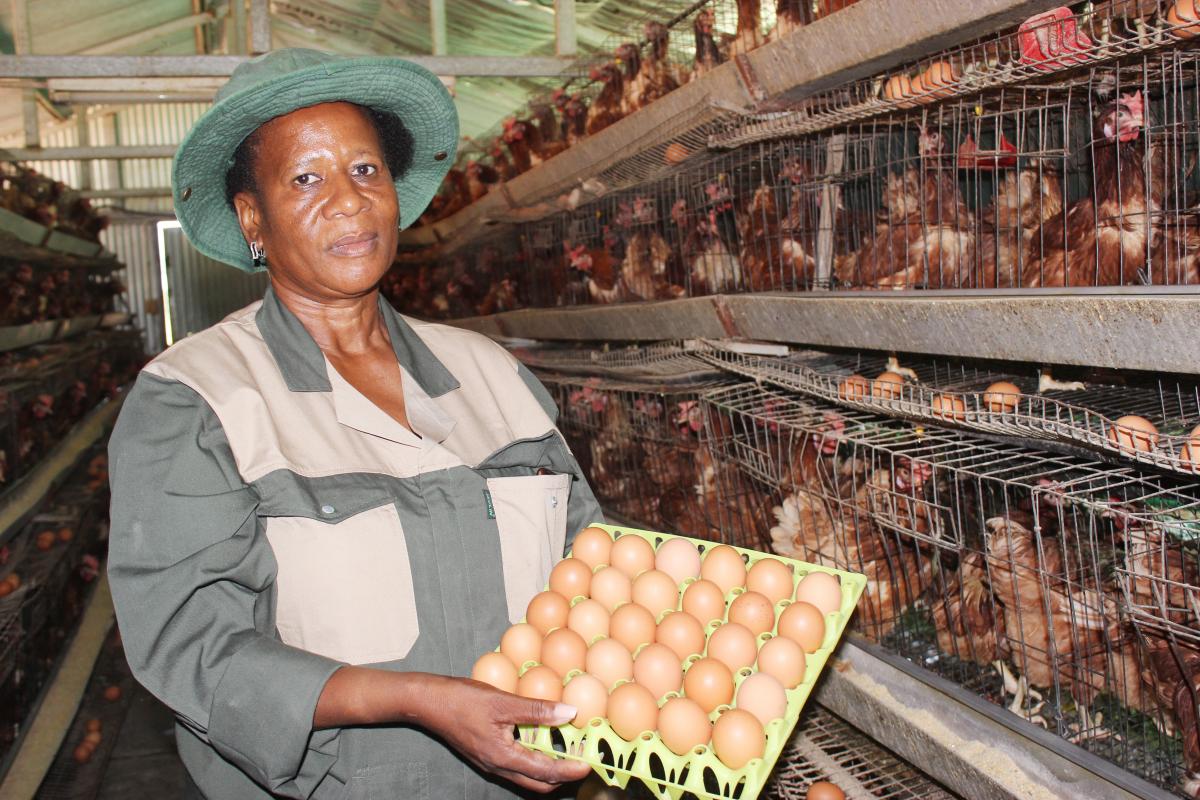 The Segometse Bagoshi Agricultural Project received 800 50-kilogram bags of laying mash from the Gauteng Department of Agriculture and Rural Development.
The Segometse Bagoshi Agricultural Project received 800 50-kilogram bags of laying mash from the Gauteng Department of Agriculture and Rural Development.
"Totalling 24 tons, the mash will feed 13 000 fully grown layer chickens," said Maggie Mokgosho (52), one of the farm’s owners.
The mixed farming project has an additional 15 000 layer chickens that are yet to produce eggs as well 134 cows, 88 sheep and 97 goats on a 10 hectare farm.
“The chickens we have at the farm produce between 8 300 and 8 700 eggs daily. Our eggs are mostly large and jumbo sized.”
The eggs are sold to local wholesalers, old age homes and shelters for the homeless, among others. Mokgosho co-owns the co-operative with her daughter Jessica (28), nephew Kagiso Somo (28) and sisters Mavis Phiri (61) and Eunice Monare (56).
Six permanent staff members have been employed and during busy periods, 12 temporary workers are sourced from the local community.
Segometse Bagoshi also offers practical experience to people studying agricultural courses at higher education institutions. At the moment, 15 students from Umfolozi TVET College in KwaZulu-Natal are being trained at the farm.
Poultry Master Plan
Supporting the poultry industry is one of government’s priority areas. At the second Investment Conference last year, President Cyril Ramaphosa signed the Poultry Sector Master Plan, which was developed by government working with industry players in the sector.
It seeks to address challenges, including cheap chicken imports, and help ensure that locally produced poultry products eventually gain a bigger market share.
The plan involves expanding the industry by increasing capacity at all stages of the poultry sector value chain. This will, in turn, increase the fixed investments, employment and the value of the sector’s output.
Targets set include;
- poultry products increasing by 10 percent within three years;
- the demand for poultry feed increasing by 300 000 tons per year and 50 new contract commercial farms being established within three years.
Government and the poultry sector have agreed to work together to revamp the certification systems so that South Africa’s chickens are able to meet the requirements of major poultry importing countries.
Judo champion to jet off to the Paralympics
Judo champion to jet off to the Paralympics UrsulaA visually impaired athlete from the Eastern Cape has achieved his Paralympic dream.
 Even though he was born with partial blindness, Ndyebo Lamani (29) is among the most highly rated judo athletes in the world and has qualified to take part in the 2020 Tokyo Summer Paralympics.
Even though he was born with partial blindness, Ndyebo Lamani (29) is among the most highly rated judo athletes in the world and has qualified to take part in the 2020 Tokyo Summer Paralympics.
Born in the rural town of Peddie in the Eastern Cape, Lamani started judo in 2010 at the Khanyisa School for the Blind in Port Elizabeth.
“I started doing the sport because I love a challenge and it gave me a chance to prove that living with a disability is no reason to not achieve one’s dreams,” he said.
Now a level one, black belt, Lamani participated in his first tournament in 2011 and took home a bronze medal. He has since represented South Africa at tournaments in various countries, including Uzbekistan, Azerbaijan, Turkey, Germany and Portugal.
He did well in these tournaments, ending in the top 10 and accumulating good points, which helped him qualify for the 2020 Paralympics, which take place from 25 August to 6 September.
“It means a lot to me to go and represent my country at the Paralympics. It means that my hard work is paying off,” Lamani said.
Before jetting off to the Paralympics, Lamani is looking to add to his already medal-laden cabinet, with tournament victories in Japan, Great Britain and Azerbaijan.
Lamani has been ranked the best judo athlete in South Africa, in the under 66 kilogram category for people living with disabilities, since 2011. He’s also ranked first in the continent and the world, in this category. In the able-bodied category, Lamani is ranked second in his home province and fourth in the country.
“I have won the Eastern Cape Sportsman of the Year for two consecutive years,” Lamani said.
Judo stopped Lamani from making bad decisions. When looking at his peers and the path they took, he said judo gave him discipline and a sense of wrong and right. “As a teenager, I was ill disciplined. Judo helped me to correct my ways,” he said.
Jobs: Department of Employment and Labour - Mar 2020
Jobs: Department of Employment and Labour - Mar 2020 LondekileICT Project Manager (Re-advertisement, applicants who applied before must re-apply)
Directorate: ICT, Head Office
Reference No: HR 4/20/03/16HO
Salary: All inclusive: R 733 257 per annum
Enquiries: Mr. EJ Nowosiad, Tel: (012) 309 4990
Head Office
Chief Director: Human Resources Management: Private Bag X 117, Pretoria
Deputy Director: Labour Centre Operations
Labour Centre: Bloemfontein
Reference No: HR 4/4/8/260
Salary: All inclusive: R 869 007 per annum
Enquiries: Ms. E Maneli, Tel: (051) 5056203
Provincial Office
Chief Director: Provincial Operations: PO Box 522, Bloemfontein, 9300
Closing date: 1 April 2020 at 16h00. For full details of the advertised posts visit our website: www.labour.gov.za

Is your employer paying you the National Minimum Wage?
Is your employer paying you the National Minimum Wage? Londekile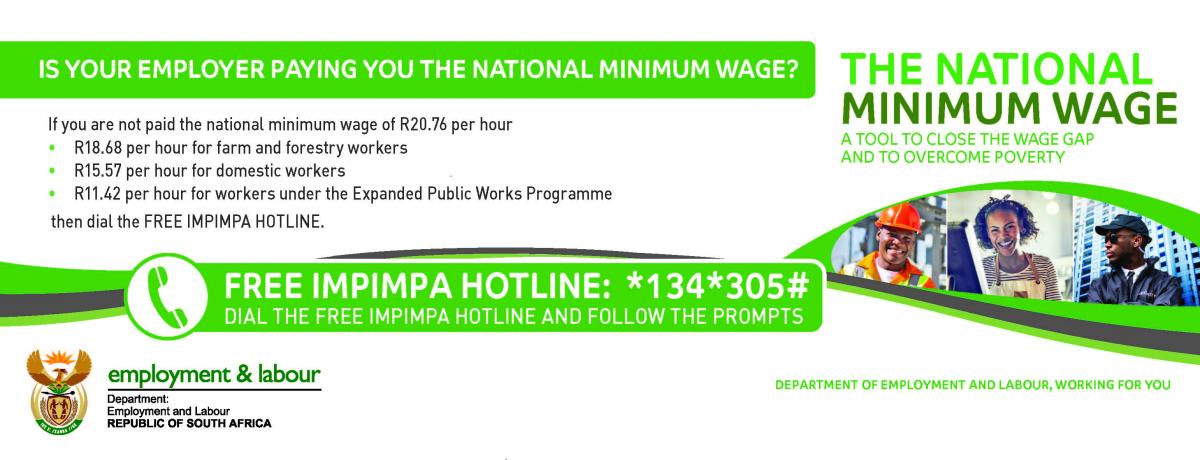
What would people have said
What would people have said Estelle Greeff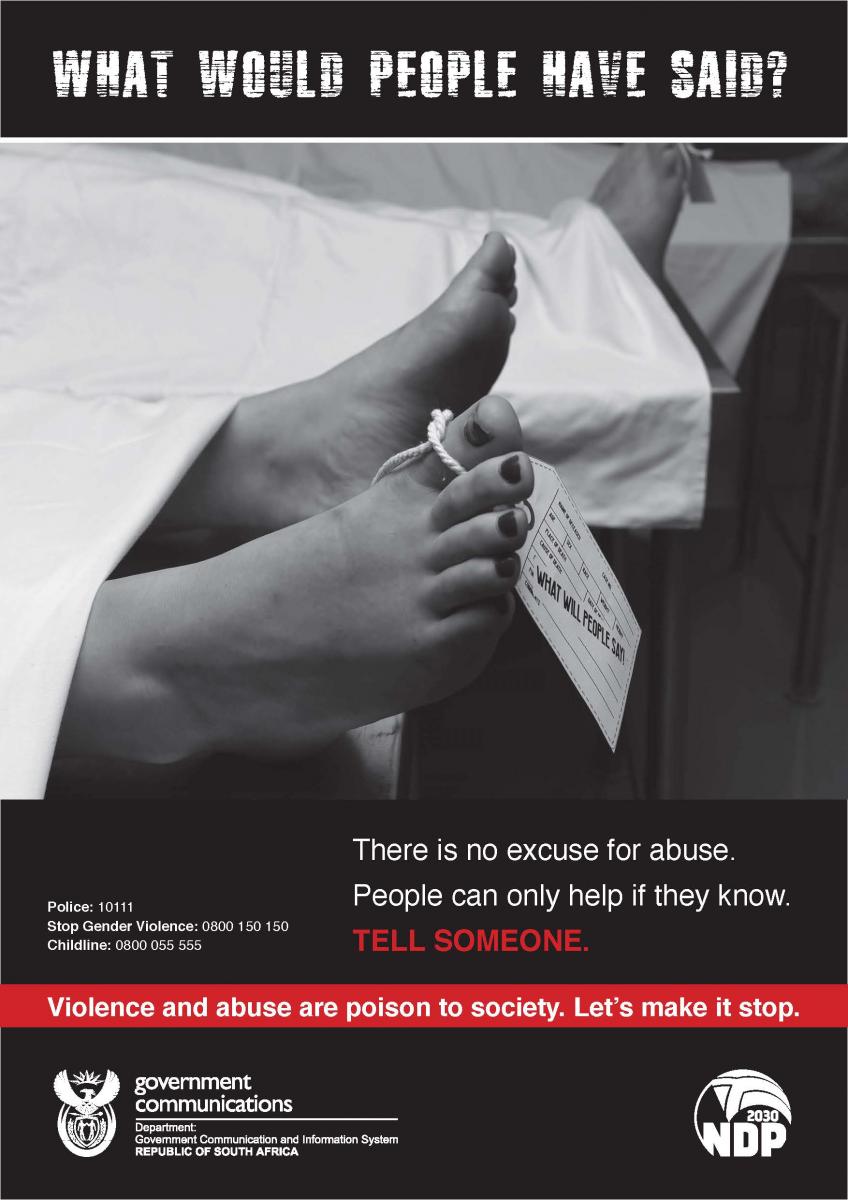
Neighbourhood watch keeps an eye on Khayelitsha
Neighbourhood watch keeps an eye on Khayelitsha LondekileA group of Khayelitsha residents are actively assisting the police to keep their neighbourhoods and children safe.
 A group of women in a Cape Town township that has serious prolems with crime have taken matters into their own hands and formed a neighbourhood watch.
A group of women in a Cape Town township that has serious prolems with crime have taken matters into their own hands and formed a neighbourhood watch.
Members of the Vukusebenza Neighbourhood Watch, in Mandela Park, Khayelitsha, wake up early and head for their posts at street crossings and around schools.
Chairperson Eileen Fortune says in the past, younger pupils were targeted by criminals for their lunch money. Since the establishment of the neighbourhood watch in December 2012, primary school children have been given safe passage to school and back.
In addition, the organisation works with the police to co-ordinate search-and-seizure operations at local high schools to rid the schools of weapons.
The 25-member neighbourhood watch was started by women who were later joined by men. Fortune says members are aged between 35 and 77.
The neighbourhood watch not only protects school pupils but also alerts police to other crimes. She says on several occasions, members have had to intervene in incidents of violence, including a recent attempt by a youngster to stab his mother because she would not give him money.
In another incident, members of the community raised the alarm when a woman was being raped. When members of Vukusebenza rushed to the scene, the two attackers fled.
“The woman had been stabbed so we gave her first aid and called the police. The stab wound missed her jugular vein by two centimetres, otherwise she would have died,” says Fortune.
In cases of petty crime involving youth perpetrators, the organisation first engages the parents of the suspect in an attempt to find a solution that does not necessarily involve imprisonment. However, when it comes to stabbings, rape and business robberies, the police are immediately alerted.
When members of Vukusebenza are the first to arrive at a crime scene, they write their own reports and give copies to the police.
Credit Ombud mends credit relationships
Credit Ombud mends credit relationships LondekileThe Office of the Credit Ombud gives hope to consumers by enforcing their rights in a fair and balanced manner.
A report released in 2019 by the National Credit Regulator shows that 25 million consumers in South Africa have active credit and of these, 10 million are behind on their loan repayments.
Spokesperson for the Office of the Credit Ombud Kabelo Teme says having a healthy relationship with creditors can be achieved through continuous and honest communication.
The Office of the Credit Ombud is a statutory body that freely resolves complaints from consumers and businesses that are negatively impacted by credit bureau information or when a consumer has a dispute with a credit provider.
These disputes can be:
- overcharging of interest or fees
- prescription of debt
- reckless lending
- debt collection issues
- fraud
- garnishee orders
- being unfairly or incorrectly listed at the credit bureau.
Teme says in cases where the creditor and debtor are quarrelling with no prospects of finding an amicable solution, they must involve an impartial party, like the Credit Ombud.
“When the initial agreement between the two of you becomes a little blurred due to either miscommunication or misunderstanding, that’s when you consult a professional, someone who will be fair, independent and honest. The Credit Ombud is the specialist you need when misunderstandings with your credit grantor or credit bureau occur,” she says.
When meditating cases, the ombud body acts in the best interests of all parties, taking both sides into consideration and carefully considering the merits of each case.
The Credit Ombud advises people to carefully read the terms and conditions listed on lending documents, to be aware that defaulting on payments can result in a bad credit record which will affect future lending, and to ensure that monthly statements are received.
Teme says if you believe you have been incorrectly blacklisted, you should contact the credit bureau involved. If you have given them the necessary 20 days to investigate, have a credit bureau reference number, and are not happy with the outcome, you may contact the Office of the Credit Ombud for further assistance.
To contact the Credit Ombud office, phone the call centre at 0861 662 837, SMS ‘Help’ to 44786 or email ombud@creditombud.org.za
Running around the world for charity
Running around the world for charity LondekileA KwaZulu-Natal marathon runner is the first African woman to complete the gruelling World Marathon Challenge but for her, the journey will only end when she raises sufficient funds to transform a rural school.
Richards Bay marathon runner Nontuthuko Mgabhi (33) has completed the ultimate challenge, running sevenmarathons in seven days, on all seven continents.
While the achievement comes with considerable prestige, Mgabhi completed the challenge to raise funds for Khiphinkunzi Primary School in Mtubatuba, north of Richards Bay.
Her worldwide adventure started on 6 February, when she joined 36 other competitors in the 2020 World Marathon Challenge.
Mgabhi braved the freezing temperatures of Antarctica, long flights and huge physical strain, but returned to South Africa having successfully completed all seven marathons.
“The feeling of crossing the line at the final marathon was incredible!” she says.
Driving Mgabhi was her determination to improve circumstances at Khiphinkunzi Primary School, which has 657 learners between the ages of five and 15, all of whom come from disadvantaged backgrounds.
“In 2018, I ran the Karkloof 100 Miler ultramarathon. Part of the entry fee for the race went to feeding needy children in rural villages. This is how I came across the school and found out about their needs. I was really touched when I saw the enormous challenges the children face,” says Mgabhi.
The school struggles with broken infrastructure and overcrowded classrooms.
“The parents of the children are unemployed and depend on government grants. The children often go to bed on empty stomachs,” she says.
Even though the world challenge is behind her, Mgabhi still hopes to raise R3.5 million for the school, through her initiative called Go Beyond For a Child. The money will be used to build five classrooms and two administration offices.
The issue of education is particularly close to her heart as she also comes from a disadvantaged background. “Although our parents didn’t have means to afford us a good or decent education, they always encouraged us to dream without limits.”
Mgabhi beat the odds to gain a degree in psychology and today works as the general manager of human resources at the Richards Bay Coal Terminal.
“I encourage people to dare to overcome barriers. The taller the wall, the higher you have to jump.”
Arts and Culture supports Innibos National Craft Awards
Arts and Culture supports Innibos National Craft Awards LondekileIf you are a crafter whose company produces corporate gifts, beaded craft products, crafts using recycled materials or souvenirs, you can now also enter the Innibos National Craft Awards.
Entries for the fourth instalment of the awards opened in November last year, and it is focused on showcasing the excellence of skill among South Africa’s crafters.
Launched in 2017, the competition last year attracted over 1 200 entries, up by over 400 entries from the inaugural competition.
Four new categories were recently added to the competition, following the support from the National Department of Arts and Culture (DAC).
The awards are organised by John-Anthony Boerma and Jan Bhuda of ArtAid Africa and are hosted under the National Innibos Arts Festival.
“The department’s October 2018 Craft Strategy Dialogue recommended that a strategic partnership with the Innibos National Craft Awards be looked into, with the aim of using the awards to encourage and stimulate creativity and innovation in the craft sector,” said Boerman.
It was also proposed that a Lifetime Achievement Award be made by the department at the annual awards ceremony.
The first such award was given posthumously to the late Simon Masilo at last year’s awards evening. This year, the award will go to a living legend, the world-renowned Ndebele artist Dr Esther Mahlangu.
How to enter
Entry is free of charge and the entry process is simple – requiring only that a photo of the craft item be submitted, along with the entrant’s details including your name, the town in which you live and your contact details.
Categories include grass-weaving, ceramics, beadwork, wirework, wood, jewellery, paper, fabric painting and printing, quilting, leatherwork, pewter, glasswork, embroidery and mixed media.
Entries can also be marked for consideration in the Corporate Gifts, Beaded Craft Products, Craft Produced Using Recycled Materials or Souvenirs categories.
The overall winner walks away with R50 000, the first runner-up with R20 000 and the second runner-up with R15 000, while the winners of the new categories each win R20 000.
Sixty entries will be shortlisted and put forward for final judging and the winners will be announced at the National Innibos Craft Awards Exhibition and Prize-giving on 21 June 2020.
You can email submissions to crafts@innibos.co.za or send it to 071 621 3597 via MMS or WhatsApp.
For more information, WhatsApp Jan Bhuda on 071 621 3597 or email John Anthony Boerma at artaid@lantic.net
